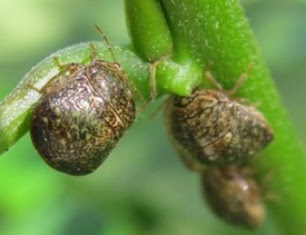 |
| Iron chlorosis on hydrangea due to high soil pH |
Do you know the pH of your soil? There is a good chance it is either too high or too low.
Soil pH problems are common in our area, often causing poor plant growth, pale or discolored leaves, and wasted fertilizer applications. Adjusting soil pH can dramatically improve plant performance, but first you need to know which direction to adjust it. Lime and sulfur, both natural products, are used to adjust soil pH.
 |
| Blossom end rot can be caused by low soil pH |
High soil pH (over 7.0) often results in iron chlorosis, which appears as yellowing between the veins on new growth. Most vegetables, fruits and ornamental plants grow best when the soil pH is between 5.5. and 6.5. Notable exceptions include blueberries, camellias, azaleas, gardenias, and centipede grass, which prefer more acidic soils. High soil pH levels are especially common near the beach.
Nutrient disorders like blossom end rot, a common problem in tomatoes, squash, peppers, and watermelons, are more prevalent in overly acidic soils (pH below 5.5). Other conditions that cause this disorder include drought, over fertilization, and extreme heat.





